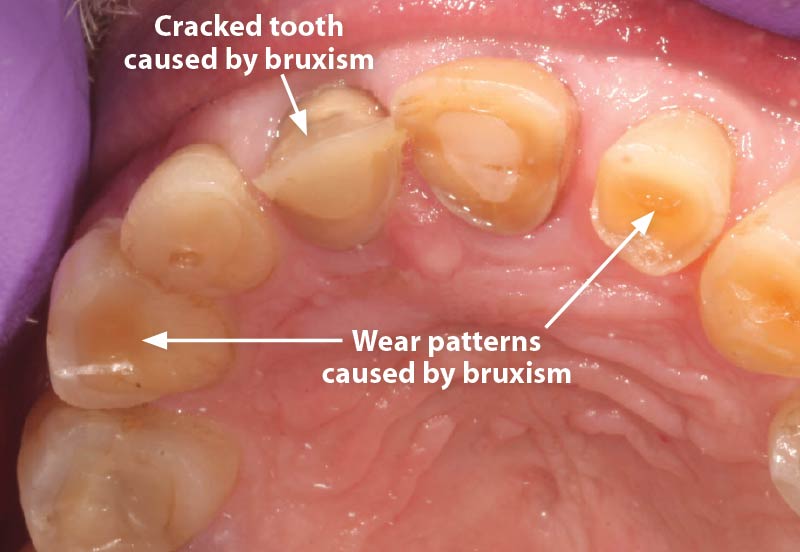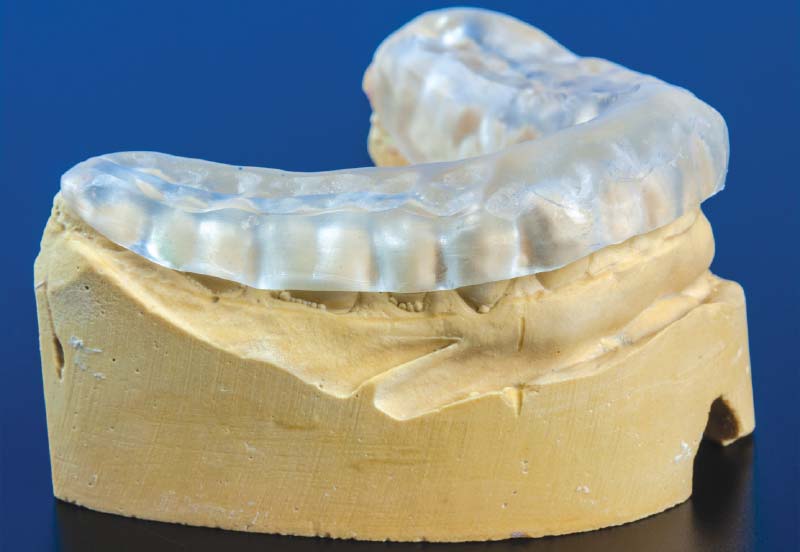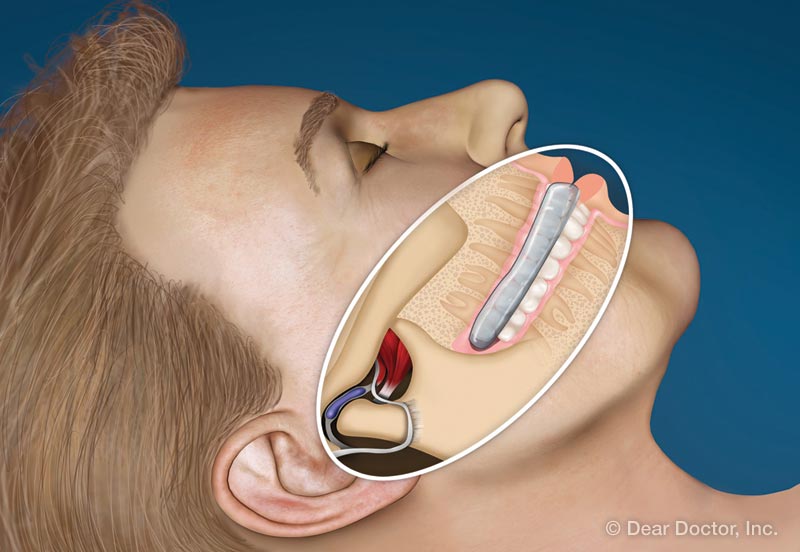Teeth Grinding
Causes and Therapies for a Potentially Troubling Behavior
(Continued)
Bruxism Treatment
Bruxism is a condition with multiple causes — that's why there is no single treatment that can be counted on to stop it. However, there are a number of approaches that often prove effective. For the most part, successful management of bruxism focuses on eliminating factors that can trigger the behavior, practicing techniques to relieve stress, and using dental devices and treatments to reduce or eliminate its adverse effects.
Since the use of illicit drugs, alcohol and tobacco have been associated with bruxism, it makes sense to forego these substances. Sometimes this involves a lifestyle change, which can be a challenge. There are many resources available to those who want to make healthy changes in their lives; your healthcare providers can be a good source of information. Occasionally, prescription medications may cause bruxism as an unwanted side effect. In that case, your medical professionals may need to review the drugs your currently take, and determine if any adjustments or alternatives could help.
 |
| Figure 1: Bruxism can cause extreme tooth damage. Here, it has worn away the tooth enamel and caused a tooth to fracture. |
Stress reduction techniques address the psychological side of the bruxism. There are a number of simple techniques that can help you relax and get a good night's sleep — and many of them can be effective at reducing teeth grinding at night. Taking a warm bath, creating a soothing environment for relaxation and keeping work-related tasks (and laptop computers) out of the bedroom can help you decompress and unwind more easily at night. Other stress-reduction practices, including meditation, mindfulness and biofeedback, can be used at any time. Many people report that these techniques have helped, though at present there is little hard evidence.
A number of dental treatments can help keep your teeth from being damaged by excessive grinding (figure 1). The most common is an appliance called an "occlusal guard" or night guard. This is a comfortable, custom-made device that is most often worn over the top teeth. Made of laboratory-processed acrylic resin, a high impact plastic, the device keeps the teeth from actually coming into contact, and can prevent damage to teeth, fillings, crowns and other dental work. This treatment is often considered the best option since it is usually less costly than crowns or orthodontics, and is conservative: no teeth need to be altered, and the treatment is fully reversible. Dental researchers have found that hard night guards provide more stability and more relief of bruxism symptoms than soft occlusal guards (figure 2). Regardless of the type of occlusal guard a patient receives, the general consensus is that the guard will sustain the wear and tear rather than the patient's teeth (figure 3).
 |
| Figure 2: After taking impressions, your dentist will make a model of your bite. A custom-made night guard is created from that model. |
 |
| Figure 3: A hard acrylic night guard protects the teeth from damage, yet is comfortable to wear at night. |
In conjunction with an appliance, dentists sometimes recommend a "bite adjustment." This typically involves removing a small amount of enamel from a tooth to keep it from projecting farther than it should. A tooth that "sticks out" in the bite is more likely to be damaged (or cause damage to other teeth) than a bite where all teeth are even. Occasionally, if a serious malocclusion is found, additional treatments such as orthodontics may be recommended. There have been many reports that once an adult corrects his or her bite with orthodontics, bruxism is reduced or fully eliminated. However, it's generally worth trying a more conservative approach before considering any additional treatments for bruxism.
In many situations, teeth grinding is accepted as a normal behavior in response to stress. But when it begins to have negative consequences for your health, it's time to seek treatment. Although the exact nature of bruxism isn't fully understood, there are a number of ways to reduce its potentially harmful effects — starting with awareness of the problem, and possibly leading to positive lifestyle changes. If teeth grinding is causing problems for you, don't just "grit your teeth and bear it;" ask your dentist how you can start controlling it.
Questionnaire for Detecting a Bruxer
How do you know if you're a bruxer? The following set of questions comes from a clinical survey that can help determine if you are experiencing a problem with teeth grinding.
- Has anyone heard you grinding your teeth at night?
- Is your jaw ever fatigued or sore on waking in the morning?
- Are your teeth or gums ever sore after waking in the morning?
- Do you ever experience a headache in your temples on awakening in the morning?
- Are you ever aware of grinding your teeth during the day?
- Are you ever aware of clenching your teeth during the day?

